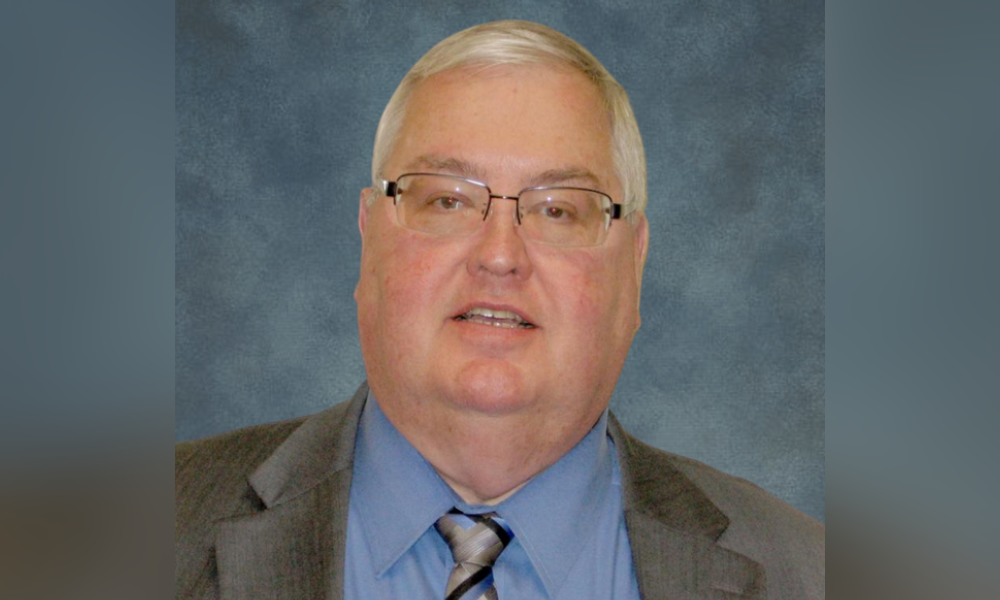Could Saudi Arabian, Chinese, or Russian investors scoop up the government-sponsored enterprises?

While citing many benefits of overhauling government-sponsored enterprises Fannie Mae and Freddie Mac, the president of the National Association of Mortgage Brokers (NAMB) said there are concerns that foreign investors may swoop in and buy them if they are removed from conservatorship.
Jim Nabors (pictured top), president of the NAMB, wondered what might happen if wealthy investors from foreign countries purchased the GSEs if the Trump administration follows through with the promise of spinning off Fannie Mae and Freddie Mac.
“The big concern that still people have today is, what if Saudi Arabia or China or Russia decide to buy up Fannie and Freddie if they put it on the market?” Nabors told Mortgage Professional America. “Do we really want the American housing market controlled by foreign governments? I don't think anybody wants that to happen.”
Nabors also raised the possibility that one of the “Big 5 banks” of the United States might purchase the enterprises. Those banks are JPMorgan Chase, Bank of America, Wells Fargo, Citigroup, and US Bancorp. He said that outcome may cause issues for brokers regarding favorable rate pricing.
“Would there be different pricing for Chase and Wells Fargo, than what they offered mortgage brokers and mortgage bankers?” he said. “Would there be one set of lower rates for their loans, since they own it, and a higher rate for us? That was a big concern.”
Previous attempts to remove GSEs from conservatorship
Nabors said those concerns derailed previous attempts to remove Fannie and Freddie from conservatorship in 2011 and 2015. Former Tennessee Senator Bob Corker introduced bills to release the GSEs to the public, but neither bill passed.
In addition, there was a guarantee that whichever bank bought the GSEs would be protected from any losses by the government.
“One problem with the Corker bill, and I guess using that as an example of what may happen,” Nabors said. “Corker wanted that whoever bought it, the government was going to indemnify them from any losses. Well, who gets to buy anything and say ‘Okay, as long as you're making a profit, fine, but if you have some losses, the government will pay for it?’ So the industry as a whole opposed that.”
The NAMB hasn’t taken an official position on the issue yet. But Nabors wonders which scenario would cause more concern and whether a lack of conservatorship might limit the Federal Reserve's impact on rates.
“Would we be more concerned with the foreign investors buying it, or would we be more concerned with the Big 5 buying it and where the government has no say in pricing?” he said. “Because although they talk about the Fed lowering the pricing, that still doesn't affect rates. They have lowered rates by 50 basis points, and interest rates have still gone up.
“So, what the Fed does has some effect on Fannie and Freddie, but what kind of effect would it have if the government wasn't involved, if it wasn't in conservatorship? I think that's a concern to all of us in the industry.”
He also wonders if the government might benefit more by keeping the GSEs rather than letting them escape conservatorship.
“NAMB hasn’t officially taken a position, but my personal opinion is, you’re making money,” Nabors said. “You’re making billions of dollars. The most you could sell it for is $300 billion. Well, how quickly will the federal government go through $300 billion? In 2024, they netted $25 billion. That’s not bad on a $300 billion investment.”
A Federal Mortgage Insurance Corporation?
Nabors is confident that mortgages would continue to be regulated even if Fannie and Freddie are removed from conservatorship, even if he would feel more comfortable if they stayed part of the government.
“Now, you know the government controls the boards of both Fannie and Freddie that are making the decisions,” he said. “Compared to when you put it out there on the open market, you don't know who you're going to get. I personally feel much more comfortable having it stay part of the federal government. As government-sponsored enterprises, the government is going to stand behind these loans, worst case scenario. They're not going to let Fannie and Freddie go under.”
If they do leave conservatorship, Nabors thinks we may see a counterpart on the mortgage side similar to the Federal Deposit Insurance Corporation (FDIC) to make sure mortgages are insured to some degree.
George Carrillo of Hispanic Construction Council sees cautious optimism in Fannie Mae’s forecast, noting rising home prices and originations—but warns trade volatility may disrupt progress. https://t.co/FbWAra7sob
— Mortgage Professional America Magazine (@MPAMagazineUS) May 12, 2025
“There’s been some talk about replacing Fannie and Freddie with a Federal Mortgage Insurance Corporation, which I think is what President Trump was talking about,” Nabors said, “so that lenders would be paying a certain fee to be regulated to make sure that they’re not going to do anything too stupid.”
While this issue appears to have rocketed back to the forefront of the administration’s priorities, Nabors expects the government to take its time to make sure whatever path they take is well thought out. Plus, since Congress put the GSEs into conservatorship, he believes they’ll want a say in taking them out.
“I think the president is moving as close to warp speed as he humanly can, but it’s not something that’s going to happen by Thursday,” he said. “And I’m sure the Senate and the House are probably going to want to be involved. Since they were involved in putting them into conservatorship, they have to vote to take them out of conservatorship. That’s at the very least going to slow the timeline down a little bit.”
Stay updated with the freshest mortgage news. Get exclusive interviews, breaking news, and industry events in your inbox, and always be the first to know by subscribing to our FREE daily newsletter.



